She Lost 100 Pounds on GLP-1 and These Are 10 Things No One Tells You
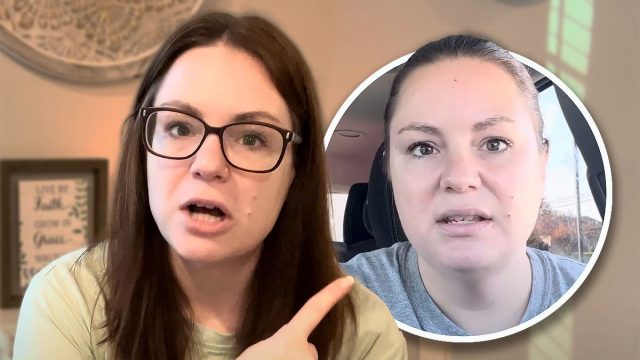
Weight loss journeys often feel like navigating a maze with too many dead ends and false promises. For Brittany Rose, GLP-1 medications finally provided the key that unlocked sustainable success, helping her shed over 100 pounds since November 2022. Through her candid YouTube videos, she's documented everything from her very first injection to her current maintenance phase, sharing both triumphs and challenges along the way. If you're considering or already using GLP-1 therapy, these essential insights from someone who's walked the path will help you avoid common pitfalls and focus on what truly matters for your success.
Trust Only Your Doctor With Dosing Decisions
When it comes to medication management, only one opinion truly matters. "Your decisions regarding your dosaging, regarding how often you take the medicine, regarding anything that involves injecting a medicine into your body should only be discussedwith or you should only take advice from your doctor," Brittany says in her post. Despite the wealth of dosing advice floating around online, these are medical decisions that should remain between you and your healthcare provider. Brittany always frames her experiences as personal rather than prescriptive, reminding viewers that what works for one person could be dangerous for another.
RELATED: 15 Things to Know Before Requesting Ozempic for Weight Loss
It's Not As Complicated As The Internet Claims
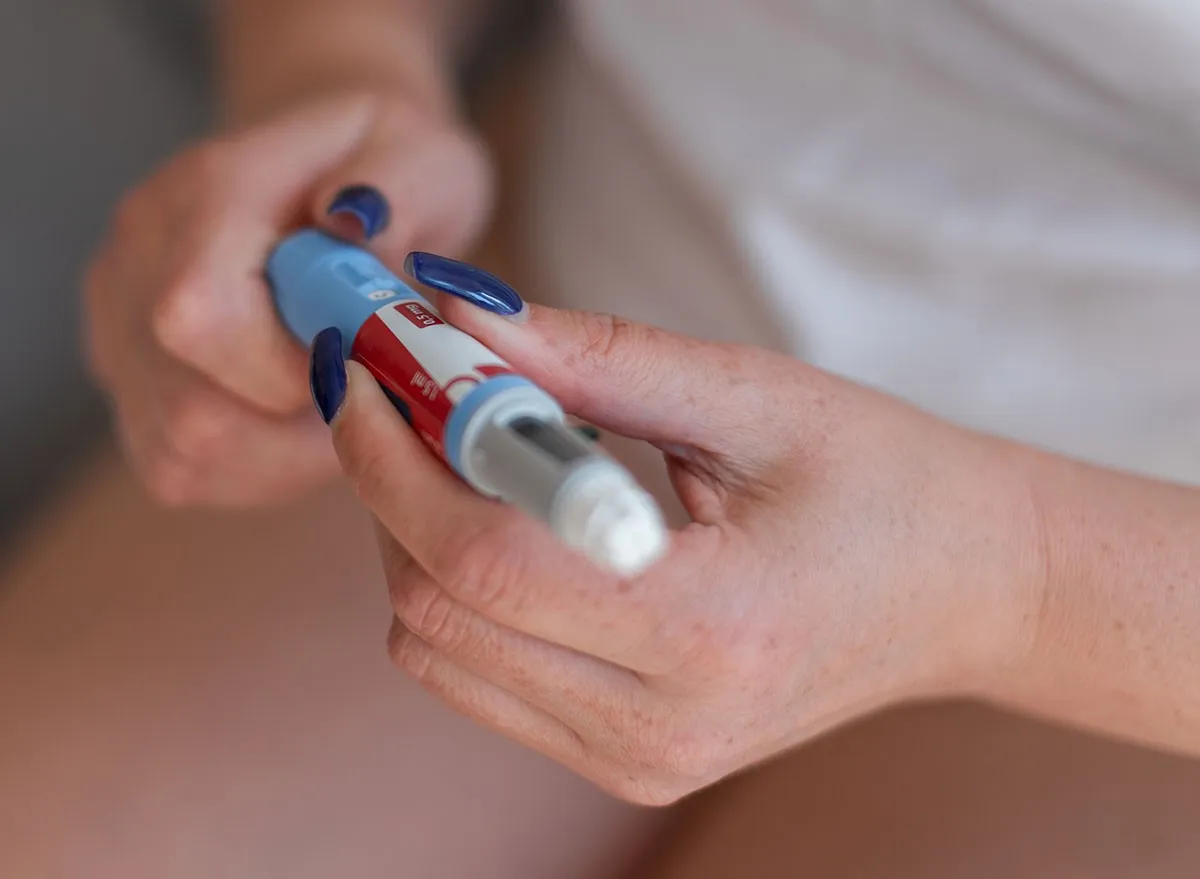
The GLP-1 journey doesn't require elaborate supplement regimens or extreme dietary restrictions. "It's simple. It's a simple thing. You do not need to stress about all of the extra protein supplements and all the extra vitamins and all of the extra things that the internet will tell you that you need," Brittany states firmly. She advocates for a sustainable approach—eating healthy foods most of the time while maintaining a calorie deficit that comes naturally with GLP-1 medications. Brittany notes that unlike temporary diets, this is a lifestyle change: "We're going back to, this isn't a diet. This isn't something that you need to obsess over. This is something that you are doing for most likely the rest of your life."
Water Will Save Your GLP-1 Experience

The simplest remedy for many GLP-1 side effects costs nothing and requires no prescription. "Water is going to save your life," Brittany insists, explaining that proper hydration addresses multiple common complaints: "Being dehydrated makes your body retain water. It makes you not feel good. It makes you be puffy. It makes you have a headache. It makes you be constipated." She notes that her worst days consistently correlate with inadequate water intake. Her practical tip for staying hydrated? Keep a dedicated water cup by the sink as a constant reminder, taking small sips throughout the day rather than forcing down large amounts at once.
Your Journey Won't Look Like Anyone Else's

Comparing your progress to others online can quickly become discouraging. "Monitor your own progress and try not to compare yourself to everybody else," Brittany advises after noticing how other content creators reached milestones faster than she did. She recommends keeping a detailed journal tracking everything from dosages to reactions, along with regular photos to document changes that might not register on the scale. Brittany also suggests limiting social media consumption around GLP-1 content: "I have a couple of people that I watch or listen to and the rest of it, I don't… because I don't want to oversaturate myself and be getting information from so many different sources."
RELATED: 20 Possible Ozempic Side Effects
Therapy Is The Missing Prescription
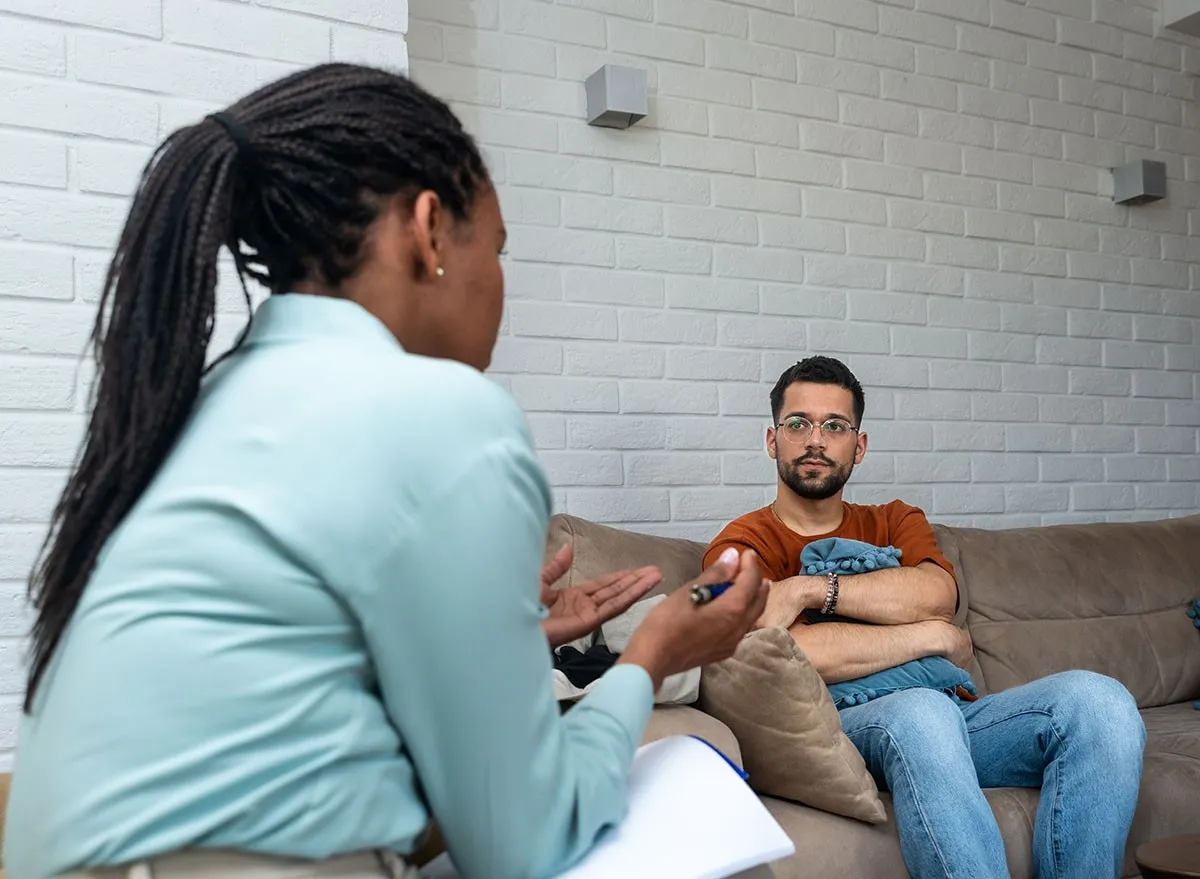
Perhaps the most overlooked component of successful weight loss is addressing the psychological factors that contributed to weight gain initially. "I am a very, very big advocate that most people that are taking a GLP-1 for weight loss need therapy," Brittany shares, drawing parallels to the mental health support required for bariatric surgery patients. She explains that significant weight loss transforms not just your body but your identity: "When you go through this journey of losing a ton of weight, you become a new person." For Brittany, therapy was essential to understanding how childhood trauma influenced her relationship with food. "I would argue all of us," she notes, have some past experiences that contributed to developing obesity, making therapy a crucial complement to medication.
Adopt The 80/20 Rule For Sustainable Success

Rigid eating plans rarely lead to lasting change. Brittany recommends a more flexible approach: "80/20 rule—20% foods that you enjoy that you want to eat, 80% healthy food." This balance allows for occasional indulgences while maintaining overall healthy habits. "Are you going to be able to be keto or to eat zero sugar or zero carbs or whatever and completely eliminate total food groups for the rest of your life? Are you going to be able to never go to McDonald's ever again for the rest of your life? Right? Probably not," Brittany points out. By allowing yourself reasonable flexibility, you're building a lifestyle you can maintain long-term rather than setting yourself up for another cycle of restriction and rebound.
Document Your Transformation

The value of visual records cannot be overstated. "Take the pictures. I wish that I had taken more before and after pictures," Brittany shares, noting that physical changes aren't always reflected on the scale. "Sometimes you're not losing weight, but you're losing inches, right? And so you want to have some pictures to look back on to really see how your body is changing throughout this process." These photos become powerful motivation during plateaus and provide tangible evidence of progress when numbers aren't moving. Consider creating a dedicated album on your phone or a physical journal where you can see your evolution month by month.
RELATED: What Happens to Your Body When You Stop Taking Ozempic
Counting Isn't Always Necessary
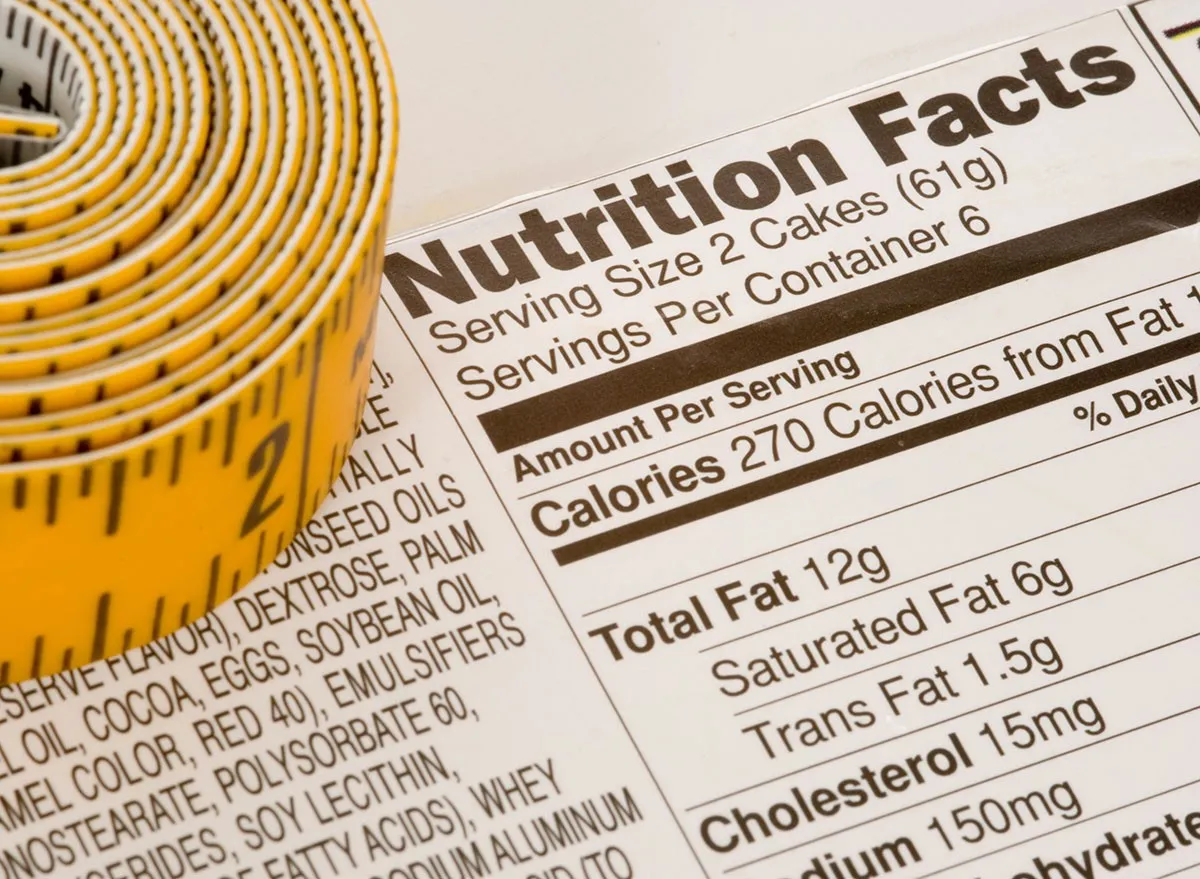
Despite popular weight-loss advice, Brittany takes a more intuitive approach: "I don't count anything ever. I count protein sometimes like when I'm doing the videos on higher protein, I count them, but for the most part I don't count anything because I just don't want to." She points out that naturally slim people rarely count calories or macros: "And healthy, skinny people that have lived healthy their whole life, most of them don't." The medication's appetite-suppressing effects often naturally create a calorie deficit, making meticulous tracking unnecessary for many people. This freedom from constant counting can make the lifestyle change more sustainable and reduce obsessive food behaviors.
Make Hydration A Priority Habit

If tracking feels overwhelming, focus on just one metric. "If you count one thing, make it be your water intake because I promise you on days that I don't drink my water or if I'm not as good about drinking water, oh boy, it's a bad day," Brittany emphasizes. GLP-1 medications can reduce thirst signals, making deliberate hydration essential. Her husband can even tell when she's dehydrated: "Chris will look at me and say, have you had any water today? Because he knows that it affects me that much." Setting specific water goals and creating visual reminders throughout your home and workspace can help maintain consistent hydration despite reduced thirst cues.
RELATED: 20 Things to Avoid While on Ozempic
This Is A Transformation, Not Just Weight Loss
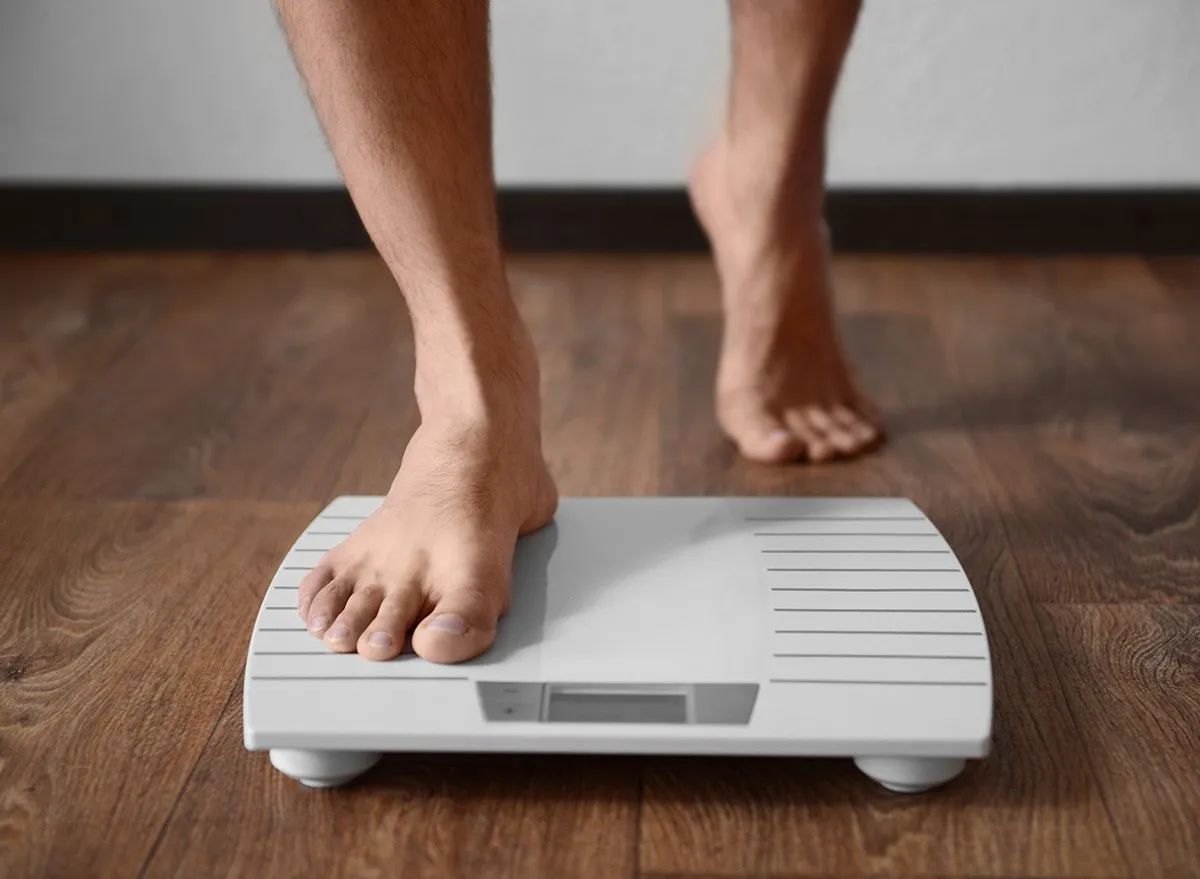
The physical changes from GLP-1 therapy are just one aspect of a more profound transformation. "You go through this like glow up, you become this new person that you probably were always meant to be, but you transform," Brittany explains. This evolution affects everything from your self-image to your relationships with others. For Brittany, the journey enabled her to stop hiding: "You don't have a freaking YouTube channel that I share with the world that has grown significantly and people in real life are realizing it. And that prior to this journey for me would not have been something that I would have been able to do." Understanding that weight loss impacts your entire identity—not just your appearance—helps prepare you for both the challenges and opportunities of this life-changing process. And if you enjoyed this article, don't miss 20 Incredible Ozempic Success Stories of All Time.




